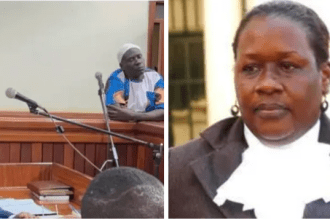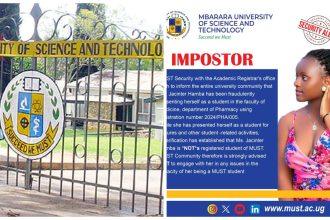Derrick Lufunya of Lufunya Associated Advocates has lodged a petition with the Constitutional Court, seeking the nullification of new rules governing the acquisition of letters of administration. Lufunya contends that these rules pose a risk of property deprivation, particularly in relation to estates that form part of the succession register. He argues that the rules hinder the issuance of letters of administration to estates in the succession register, primarily affecting property, especially land, on the former blue pages.
Lufunya is urging the Constitutional Court to find these rules in violation of Articles 8A, 20, 21, 26, and 45 of the Constitution, asserting that they may lead to the loss of property, primarily land, documented under the succession register. He highlights the practical challenges posed by the new rules, making it nearly impossible to administer and distribute land on the former blue pages to the rightful beneficiaries.
The respondents in the petition are the Attorney General and Administrator General. Lufunya calls attention to the Attorney General’s letter to Chief Justice Alfonse Owiny-Dollo, dated September 22, 2023, regarding the fate of the succession registers and certificates of succession. He deems this letter irrational and inconsistent with constitutional articles, claiming it attempts to deprive beneficiaries of their rights to property and family heritage.
Furthermore, Lufunya challenges the Attorney General’s recommendation to the courts not to renew letters of administration for estates under the succession register. He argues that such recommendations are ultra vires, disregard the doctrine of separation of powers, and violate Article 128 of the Constitution by attempting to direct independent courts on matters of justice.
Lufunya points out the omission of the succession registers and certificates in the Local Government Act, which he deems illegal and a contravention of Article 26 of the Constitution. He asserts that this omission has resulted in adverse consequences, including land grabbing, a backlog of judicial land cases, overlapping land titles, and impediments to economic growth, denying many beneficiaries access to their property.
Counsel Jonathan Kirumira echoes these concerns, emphasizing the importance of key stakeholders, such as the Buganda Kingdom, in addressing the ongoing land issues. Kirumira also notes a deliberate governmental decision to exclude the succession registers in subsequent laws.
The petition includes an affidavit from Ponsiano Kyebuzibwa, a resident of Kanyonyi town council in Gomba district, highlighting how the recommendations have affected his ability to exert control over a 39-hectare land inherited from his father.
In Uganda, succession matters fall under the jurisdiction of the Administrator General, operating under the Ministry of Justice and Constitutional Affairs.
Background on Succession Register
Succession Registers are records detailing the estates of deceased individuals in the Buganda Kingdom. They include property details, distribution, and beneficiaries. Following a person’s death, their will would be proved before the clan, and if they died intestate, the clan would distribute the property. The records, upon approval by the Kabaka, would constitute a Succession Register. The certificate of succession, issued by the Lukiiko, acted as a transfer of land and a limited grant of letters of administration. After the abolition of the Buganda Kingdom in 1967, the Administrator General gained control over the succession registers.




















